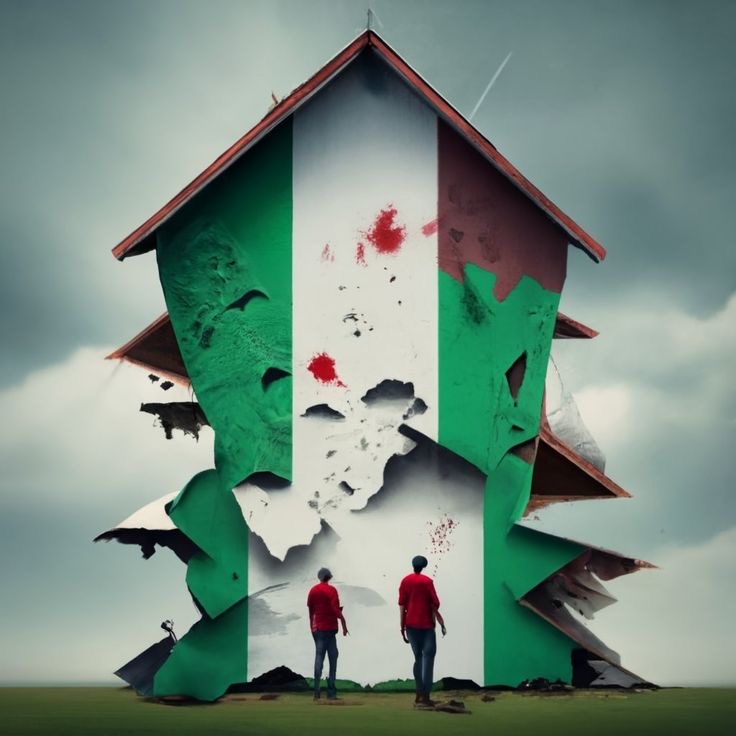
It is often said that “children are the leaders of tomorrow.” When we were kids, we relished the thought of becoming leaders.
What we could achieve, our plans to elevate the country to heights like never before was persistent in our dear little minds. However, it has been years since little kids turned into young men and women, but the promised tomorrow still eludes us.
It is often said that “children are the leaders of tomorrow.” When we were kids, we relished the thought of becoming leaders. What we could achieve, our plans to elevate the country to heights like never before was persistent in our dear little minds. However, it has been years since little kids turned into young men and women, but the promised tomorrow still eludes us.
Nigeria gained independence on 1st October 1960 and became a republic on 1st October 1963. This led to the establishment the First Republic with Nnamdi Azikwe and Sir AbubakarTafawa Balewa as its president and prime minister respectively. However, this reign was cut short just three years later when Major Emmanuel Ifeajuna led a team of rebels from the Nigerian Army including Major Chukwuma Kaduna Nzeogwu to a bloody takeover of all government institutions. This led to the emergence of Major-General Johnson Aguiyi-Ironsi as the first military Head of state.
The counter-coup few months later which produced Lieutenant-Colonel Yakubu Gowon as the new supreme commander of the Nigerian Armed forces caused the rebellion that lead to the civil war. The war lasted almost three years before it came to an end on the 14th of January, 1970. However, military rule continued to reign for another nine years under various military Heads. In 1979, the then military head of state General Olusegun Obasanjo paved the way for a democratic leader, thus the birth of the Second Republic on 1stOctober 1979 under the leadership of Sir Shehu Shagari as the elected president and Commander-in-Chief. This republic was short-lived too like the first, as after just four years there was yet another military coup, this time led by Major General Muhammadu Buhari in 1983.
In 1990, the then-military head of state General Ibrahim Babangida promised to end military rule, but the promise was postponed to 1993 when he agreed for general elections to be held in the country. Again, the election was clouded by controversy as General Babangida refused to hand over the country to the elected president MKO Abiola who won a decisive victory due to incoherent reasons. The annulment of the election led the country into chaos which lead to the resignation of General Ibrahim Babangida and thus the birth of the Third Republic under the leadership of Ernest Shonekan as the head of the interim National government. However, just three months later the reign was overthrown by another military coup by the then Minister of Defense General Sani Abacha.
The above-stated series of events brought us to the state we are today in Nigeria. The fourth republic! After the demise of General Abacha in 1998, his successor General AbdulsalamiAbubakar initiated the transition which herald Nigeria’s return to democratic rule in 1990 ironically under the leadership of Rtd General Olusegun Obasanjo. The same Obasanjo who led before came back 20 years after to lead again! One would hope for a change in the future, but we are now in 2024, and we have a president who served as a senator in the 1990s,preceded by one who once led the country in the 1980s! This is not to mention the serving members of the Nigerian parliament who have been in office for over two decades.
It is quite ironic that the leaders we had over 50 years ago are still in the thick and thin of affairs in Nigeria. The late Rilwanu Lukman was appointed a Minister in 2008 under the Yaradua Administration having served as a Minister before under General Muhammadu Buhari’s led military government of 1983-1985. I can vividly remember his senate screening where he was asked why he feels he should be a minister again about 2 decades after his first service. His response still rings in my head because it was amusing! “It is because the youths are still not competent enough”, he said. Mr Lukman is no longer with us (God rest his soul), but we still have former governors and ministers who served decades ago getting appointments everywhere, including governing councils of Federal University all in the struggle to keep them in the fold. This begs these question, when is the tomorrow we were promised?
Bello Mahmud Zailani